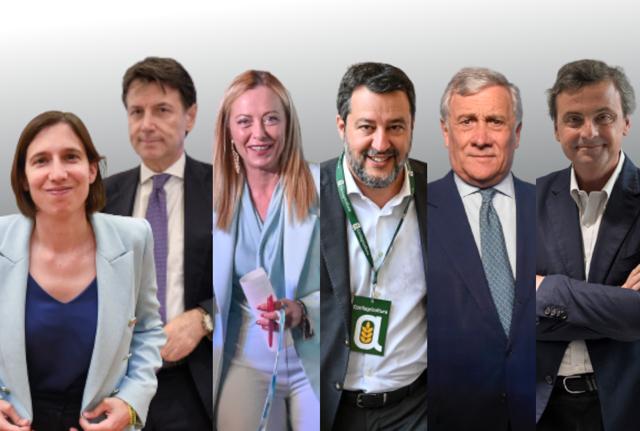Meloni, Schlein, Tajani, Salvini, Conte, and... Who's Rising, Who's Falling, Who's Staying Still: Ratings and Opinions on Political Leaders


The Italian political summer presents few surprises and many confirmations. Between consolidated leadership, attempts at revitalization, and identity crises, here is the report card for the main party leaders. Ratings from 1 to 10, with the corresponding reasons.
Giorgia Meloni (Brothers of Italy) – Score: 8
The prime minister remains the center-right's point of reference. Her leadership is solid, her communication effective, and consensus is holding up. However, the narrative is starting to show signs of fatigue. Pros: clear vision, control of the coalition. Cons: risk of saturation, growing polarization.Elly Schlein (Democratic Party) – Vote: 6
The Democratic Party secretary has consolidated the strength of the so-called "hard core" but has yet to establish itself as a credible government alternative. The party is stable but not growing, and its communication often appears generic. Pros: ideological coherence. Cons: weak leadership, limited electoral appeal.Giuseppe Conte (Five Star Movement) – Rating: 6.5
Conte remains the most recognizable face of the opposition. His stance on justice and social rights is strong, even though the M5S is far from returning to the glories of 2018. Pros: direct communication, clear identity. Cons: difficulty relaunching the movement.Antonio Tajani (Forza Italia) – Rating: 7
The deputy prime minister is surprisingly resilient. Despite internal tensions and a few communication gaffes, he maintains a strong institutional image and a solid presence in the government. Pros: balance, diplomatic experience. Cons: lack of innovation, uncharismatic leadership.Matteo Salvini (Lega) – Rating: 6.5
The League leader has endured a long period of stagnation, but now the Strait of Messina Bridge is his flagship project and could provide the foundation for revitalizing his image and the League's capacity for managerial innovation. Having emerged strengthened from the party congress, he can now focus on developing a strategy for the upcoming general elections. Pros: tenacity, visibility. Cons: limited consensus, rhetoric in need of revitalization.Nicola Fratoianni and Angelo Bonelli (Green and Left Alliance) – Rating: 6.5
Rising in the polls thanks to clear positions on Gaza and the environment. The complaint to the International Criminal Court has drawn attention. Pros: consistency, active mobilization. Cons: limited visibility outside of niche issues.Carlo Calenda (Action) – Rating: 5
He maintains a respectable position, yet his centrist project isn't taking off. Communication is often polemical, but not always effective. Pros: technical expertise. Cons: divisive leadership, poor grounding.Matteo Renzi (Italia Viva) – Vote: 4
In free fall. The former prime minister is unable to relaunch himself, and his party is on the margins. Pros: rhetorical skill. Cons: trust at an all-time low, a frayed project.In conclusion, Italian politics is moving between affirmation and stagnation. Meloni remains the dominant figure, while the opposition is still seeking a strong and recognizable voice . The center is fragmented, and the more radical wings are gaining ground. The autumn promises to be a heated one: we'll see who can truly change pace.
Affari Italiani





